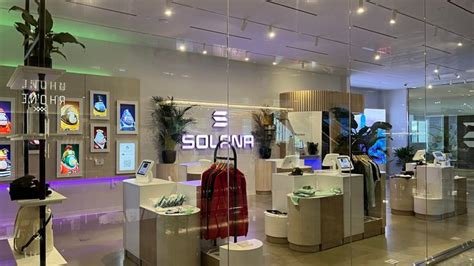Understanding the System Accounts in Solana: a deep dive in PDAs
In the world of blockchain and decentralized applications (Dapps), programmatic access to assets and data is crucial for creating complex systems. One concept that has been gaining attention in recent times is the system accounts in Solana, specifically when it comes to program data addresses (PDA). In this article, we will deepen what PDA is, the underlying idea behind the system accounts and how they work.
What is a programmatic account?
In terms of blockchain, an account is any type of entity that can contain or manage assets, data or functionality in a blockchain network. A programmatic account is a special type of account that allows developers to create custom programs or smart contracts that can perform specific actions on Blockchain.
Program data addresses (PDA)
A program data address (PDA) is an exclusive address derived from bytecode or program code. It represents the program “programmatic identity” and serves as its unique identifier in blockchain. PDA addresses are used to identify programs and their interactions with other accounts, active and data.
System Accounts

In Solana, system accounts are a type of account that has exclusive access to specific functions, data or assets within the network. They are designed to provide programmatic access to these features, keeping control over them. System accounts are usually created through the Solana Program ‘(CLI) command line interface and can be used to interact with the Solana API.
The PDA System Accounts concept
When a program creates a system account, it derives your address from your bytecode or code -source. This derived address is then used as a program data address (PDA). The -chave concept here is that the program itself has and manages the data associated with this PDA address.
In other words, when a program uses its own PDA to access an asset or perform an action in another account, it has explicit property property. This allows thin granulation control over assets and functionality in the Solana ecosystem.
Property model
The idea behind the PDAs system accounts is that programs have the sole property of their associated data. This model offers several benefits, including:
* Decentralized Property : Owners can manage their own data and assets without relying on the central authorities.
* Access control : Programs can control those who have access to their data and functionality.
* Flexibility : Programs can modify or exclude their own data at ease.
Real world applications
PDA system accounts have several real -world applications, such as:
* Decentralized Finance (Defi) : PDA System Accounts Enable decentralized loan platforms, loans and negotiations to manage your assets and interactions.
* Non -fungible tokens (NFTS) : System accounts allow NFT creators to control the property and transfer of exclusive digital assets.
* Smart Contracts : PDA system accounts can be used to implement custom intelligent contract logic, allowing developers to create complex applications.
Conclusion
System accounts with PDAs in Solana represent a powerful concept that allows programmatic access to assets and data, maintaining property and control. Understanding the underlying idea behind these system accounts, developers and users can take advantage of their potential to create complex blockchain applications that are decentralized and flexible. As the use of PDA system accounts continues to grow, we can expect to see innovative solutions emerge in various sectors, from finance to games.
